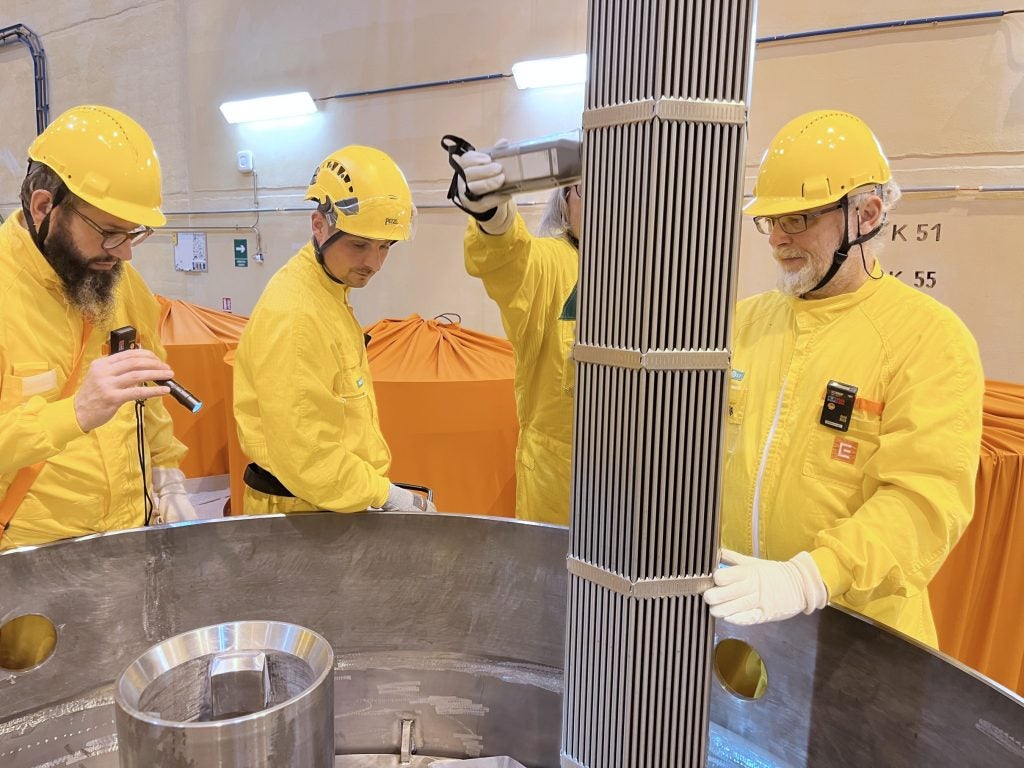
US-based Westinghouse has delivered three dozen fuel assemblies to the Temelín NPP in the Czech Republic. This year, ČEZ also expects to receive Westinghouse fuel assemblies for the Dukovany NPP. In 2026 ČEZ expects new nuclear fuel from the French company Framatome. ČEZ said the expansion in the number of suppliers and the initial deliveries represent a significant strengthening of the energy security of the Czech Republic.
The Czech Republic has six commercially operational reactor units: four Russian designed VVER-440 units at the Dukovany site, which began operation between 1985 and 1987, and two VVER-1000 units at Temelín, which began operation in 2000 and 2002.
ČEZ started working to increase the number of suppliers at the end of the last decade. Based on a tender launched in 2018, in 2022 contracts for the supply of fuel assemblies for Temelín were signed with both Westinghouse and Framatome. In 2023, ČEZ also concluded a contract with Westinghouse for Dukovany. In addition, in 2022, with an emphasis on strengthening energy security, ČEZ decided to increase its total fuel reserves.
“It is a step that significantly increases the energy security of the Czech Republic. In addition to the diversification of nuclear fuel suppliers, we also hold strategic stocks in both of our nuclear power plants,” said Daniel Beneš, Chairman of the Board of Directors and CEO of ČEZ.
Westinghouse fuel was previously used at Temelín from 2002 to 2009 but following technical problems including fuel deformation and incomplete rod insertion, TVEL in 2006 won a tender for a 10-year fuel supply contract with delivery to start in 2009. The plan was to phase in the TVEL fuel gradually but in 2009 ČEZ decided to immediately switch TVEL fuel in 2010 and the remaining Westinghouse fuel was removed. Westinghouse subsequently redesigned its VVER-1000 fuel following similar problems in Ukraine. Westinghouse recently designed fuel for VVER-440 reactors. TVEL’s contract ended in 2023.

The new assemblies are currently being accepted in Temelín. “One of the first steps is to check the accelerometers – a special device that indicates inappropriate handling during transport,” Bohdan Zronek, ČEZ Board Member and Director of the Nuclear Energy Division. Specialists also verify the weight of fuel, perform visual inspections and check documentation. The fuel is then placed in storage. The plan is to load the Westinghouse fuel into Temelín unit 1 next autumn. “This must be preceded by a permit from the State Office for Nuclear Safety. We are currently preparing the application documents,” said Zronek.
The new fuel must meet the strictest safety requirements. The acceptance was preceded by a five-year series of analyses and tests. The new assemblies meet the requirements for longer fuel campaigns – 16 months in Dukovany and 18 months in Temelín. As a result, ČEZ expects to achieve average annual production of 32 TWh after 2030.






